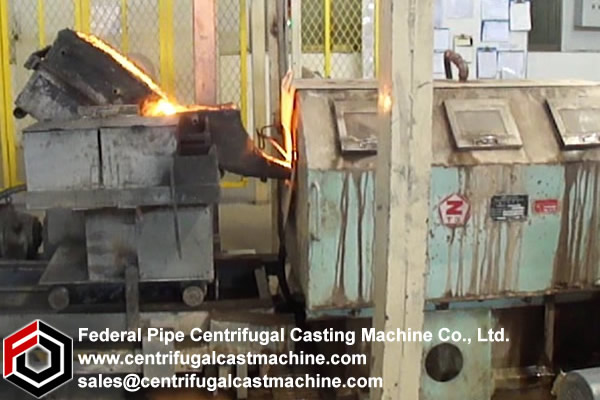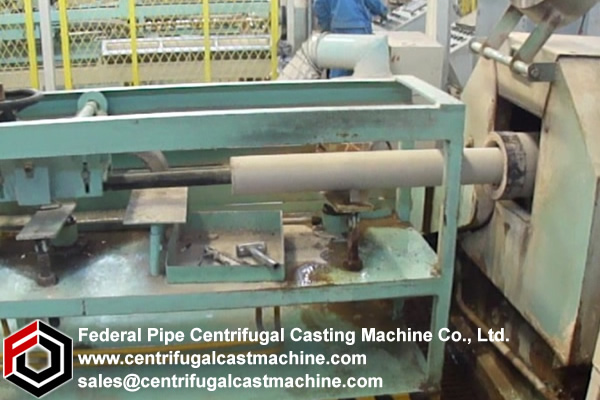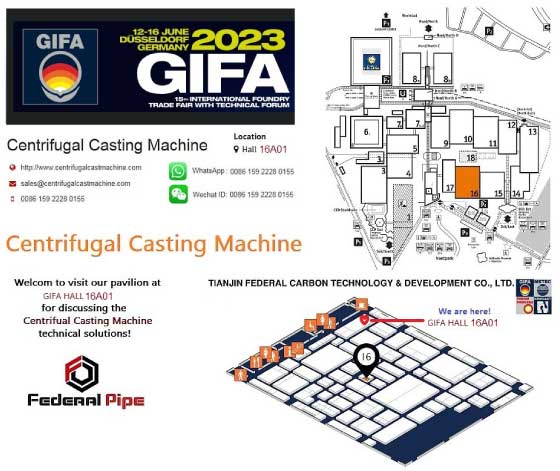molds for centrifugal casting should be maintained in the operating range
Pouring Speed‐This is governed primarily by the characteristics of the par‐ticular metal being poured and the need to finish the delivery of the molten metal before the metal becomes sluggish, although too high a rate of pour can cause excessive turbulence as well as "raining" and a potentially scrapped casting. In practice, slow pouring offers a number of advantages. Directional solidification and feeding are promoted while the slow devel‐opment of full centrifugal pressure on the outer solidified skin of metal reduces the risk of hot tearing. centrifugal casting machine
• Mold Temperature‐As a general recommendation, molds for centrifugal casting should be maintained in the operating range of 500 ‐550F (260‐288C). Preheating of the mold to this approximate temperature range will also facilitate the application of the refractory mold coating. The principal significance of maintaining the mold (die) at a uniform operating tempera‐ture will also serve to ensure uniformity of the cyclic pouring operation as well as casting quality
the mold (die) at a uniform operating tempera‐ture will also serve to ensure uniformity of the cyclic pouring operation as well as casting quality

